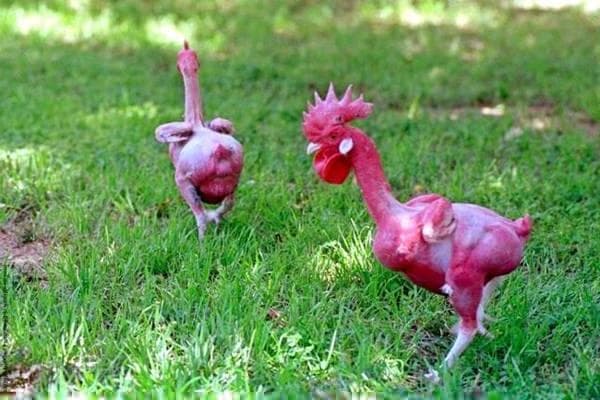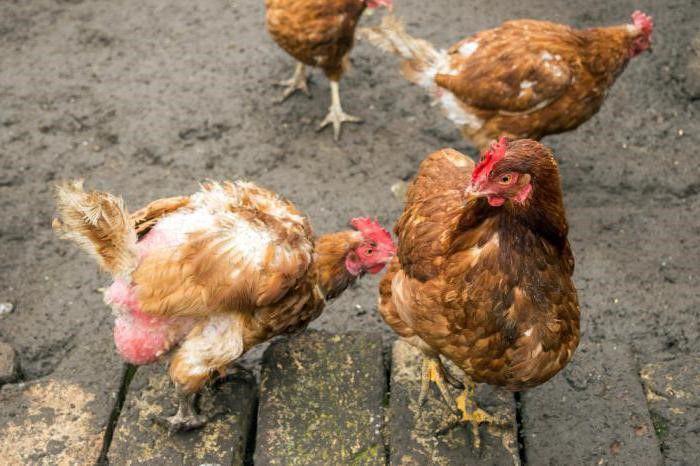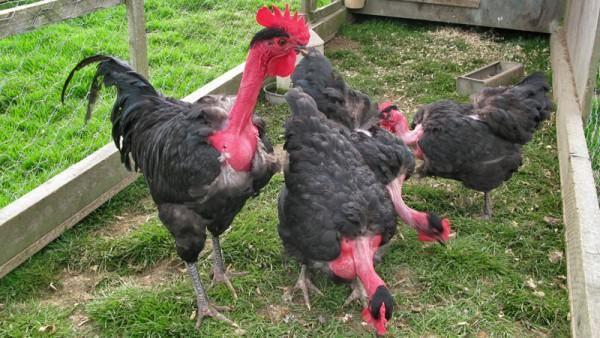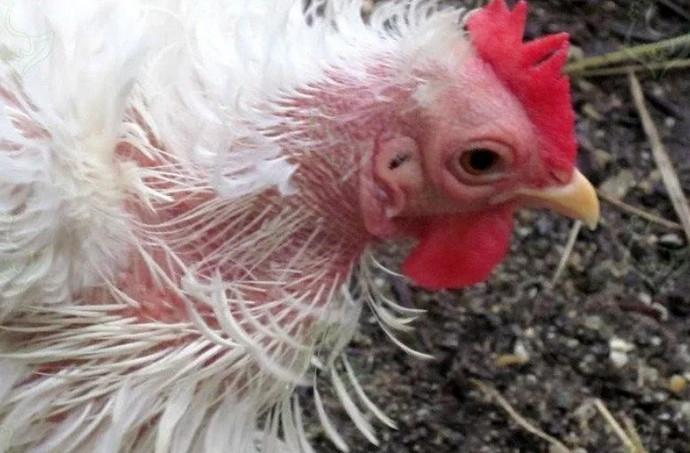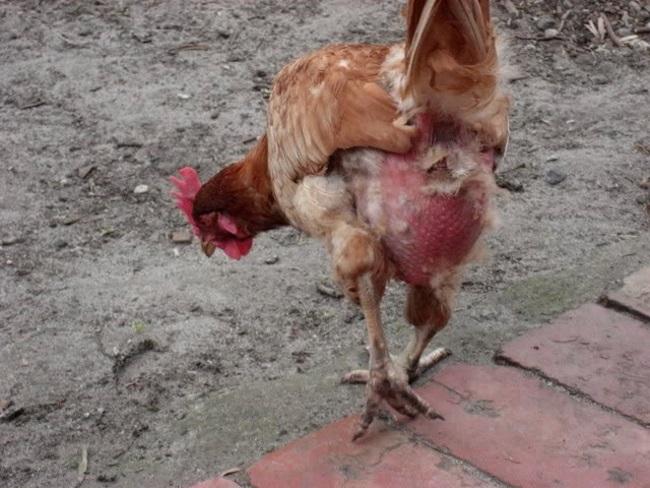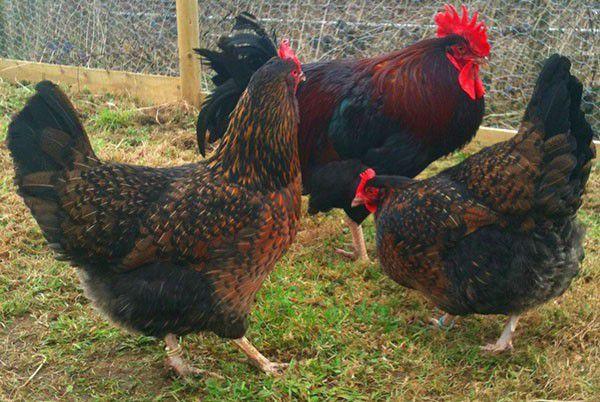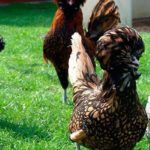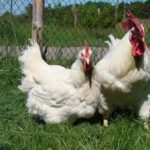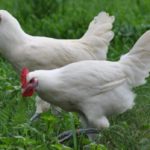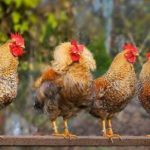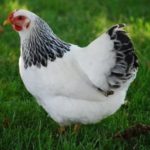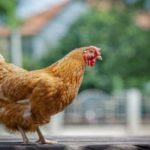Many novice poultry farmers are interested in the pressing question: why do chickens go bald? The appearance of alopecia is accompanied by the fact that birds' feathers become sparser and duller. Loss of fluff is also observed. The cause of the problems is poor nutrition, violation of the living conditions of the birds, and infestation with parasites. To cope with baldness, you need to provide your chickens with proper care.
The main causes of baldness in chickens
To choose a treatment for chickens, you need to determine the cause of baldness in a rooster or laying hen. If help is not provided immediately, the birds will simply die. The main provoking factors for the development of alopecia include the following:
- Nutritional disorders and vitamin deficiencies. It is important to make adjustments to the chickens' diet. The cause of feather loss is often a deficiency of certain microelements. It is also worth considering the compatibility of feeds used to feed birds.
- Insufficient amount of feed. Farmers often neglect additional complementary feeding. This is very important during the natural molting period. At this time, chickens require more food and vitamins.
- Lack of vitamin D. During the warm season, chickens should spend at least 12 hours outside. This affects their productivity. In winter, birds require additional lighting. To do this, you can use a regular or ultraviolet lamp. It should have a red tint.
- Infestation with parasites. The cause of problems is often an attack by feather eaters. These insects resemble lice or fleas. They feed on the feathers and skin of chickens and primarily infect the neck, head and back. When damaged areas appear, the risk of developing infections increases. To avoid such problems, you need to install a trough with ash and sand in the poultry house.
- Incorrect conditions. To avoid problems, it is recommended to systematically clean the chicken coop, observe sanitary standards, frequently ventilate the room and replace the bedding.
Symptoms
Chickens first go bald around the tail. Then the feathers on the back and head fall out. Laying hens also lose neck feathers. The wings are the last to suffer. As alopecia develops, feathers lose their elasticity and become dull. Birds can also lose their down.Sometimes the problem becomes so widespread that the birds are left almost naked. Sometimes the process is accompanied by skin damage. In this case, bruises appear around the damaged areas.
If you immediately identify the problem and get rid of it, the internal organs do not suffer. If the provoking factor is not eliminated, there is a risk of developing vitamin deficiency and infection. There is also a threat of disruption of internal organs.
Vitamin deficiency due to illness will lead to a decrease in productivity or a complete cessation of egg laying.
How not to confuse alopecia with natural shedding?
In autumn, birds experience seasonal feather loss. Molting is considered a physiological process that is aimed at a gradual change in plumage. It differs from baldness by the uniform loss of feathers.
This process affects both the head and tail. The old plumage is replaced by a new one - more durable and shiny. At the same time, the health of the chickens remains normal. They retain a good appetite and full activity.
Molting can begin in birds even after oviposition is completed. This process is also considered natural. In other situations, molting begins in the fall and lasts 2-3 months. Egg breeds shed faster compared to meat breeds.
Danger of disease
Alopecia in chickens is often accompanied by a disturbance in their well-being. It affects the general condition of birds. They look painful. In addition to baldness, there is a risk of slowing the growth of birds and a significant decrease in egg production parameters.
What to do if chickens go bald?
If symptoms of alopecia appear, you need to take immediate action. To cure chickens, the causes of the problems must be determined.
Diet
One of the main reasons for feather loss is considered to be an unbalanced diet, which causes a deficiency of vitamins and minerals. To cope with the problem, chickens need to be given a lot of microelements. In this case, it is allowed to use ready-made formulations that contain many valuable components. If chickens eat homemade food, they should buy vitamin supplements. Sometimes the problem is caused by excess amounts of vitamins and minerals. In such a situation, it is worth increasing the volume of protein components and cutting down fats.
Vitamin supplements
When preparing mixtures and mashes for chickens yourself, you should definitely add vitamins and minerals to them. They can be purchased at a special veterinary pharmacy. For alopecia, it is recommended to add the following components to the feed of each chicken:
- 7 milligrams of manganese sulfate;
- 3 milligrams of sulfur;
- 1 milligram of salt;
- 4 milligrams of potassium iodide.
If feather loss is advanced and chickens become very bald, it is recommended to use vitamin B12.
Conditions of detention
Chickens can go bald due to improper maintenance. The development of alopecia is associated with a lack of vitamin D, which birds receive during walks. Laying hens raised in cages are especially susceptible to the problem.
Birds need to be walked every day. In cold weather, it is worth installing ultraviolet lamps in chicken coops. They need to be turned on for at least 6-7 hours a day. A regular lamp should burn for 10-12 hours.
Access to fresh air is important. To do this, it is recommended to install windows or organize ventilation holes. This will help avoid bad smell. In the chicken coop it is worth placing a container filled with ash and sand.This will allow the birds to clean their plumage from insects that often cause baldness.
How to treat alopecia
To cope with baldness of birds, you can use medications and home recipes.
Drug therapy
Treatment of alopecia in chickens can be carried out using the following drugs:
- Desi spray - this drug helps heal ulcers in the affected areas;
- Gamavit - is an immunomodulator, which is indicated for weakened chickens;
- Ganasupersvit is a vitamin complex;
- Chiktonik - represents vitamins that help saturate the body.
Traditional methods
In addition to medications, you can use traditional recipes. At the same time, chickens should put crushed fallen feathers in their food. They include a lot of cysteine, which ensures plumage growth. The horns and hooves of livestock will also help replenish the supply of useful substances. They are recommended to be used in crushed form.
How to prevent problems in the future?
To avoid problems, you need to follow the rules of prevention:
- feed birds correctly;
- keep the poultry house clean;
- provide chickens with walks outside;
- use ultraviolet lamps;
- provide chickens with access to water;
- give birds calcium - it can be obtained from chalk and gypsum.
Alopecia in birds can be associated with a variety of factors. To cure chickens, first of all, you need to determine the cause of feather loss. After which it is recommended to change the conditions of keeping the birds and adjust their diet.

